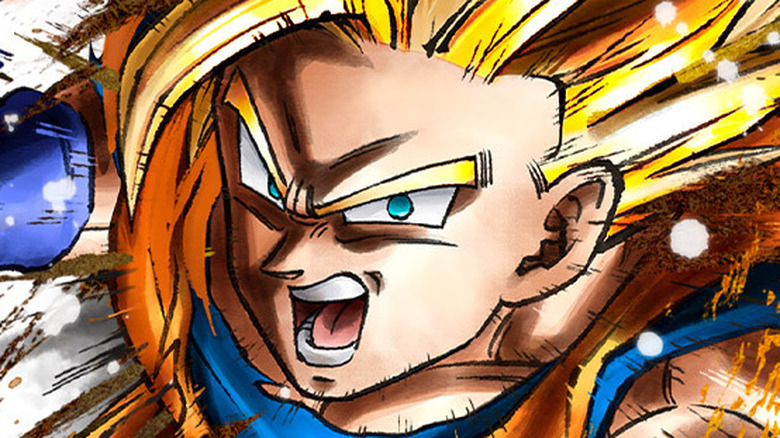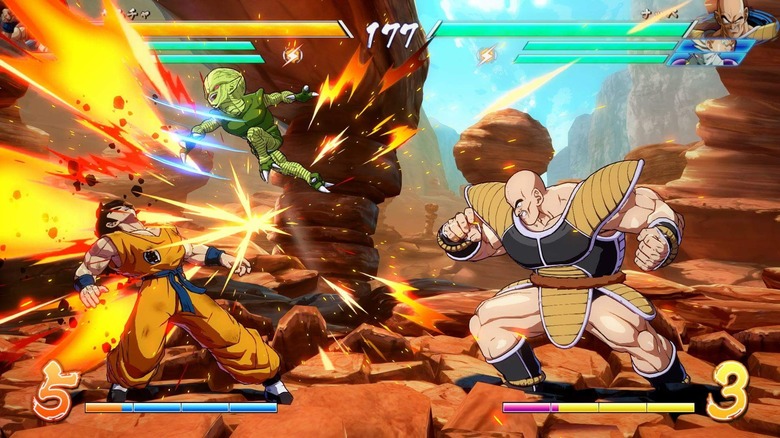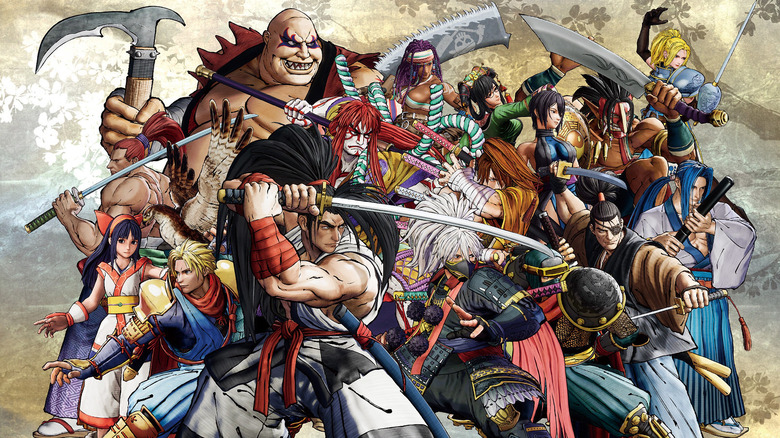What Is Rollback Netcode And Why Is It Important For Online Fighting Games?
The Evolution Championship Series (Evo), made a glorious return in August 2022. After being canceled in 2020 and replaced with an online-only event for that year and in 2021, the fighting games tournament made its reappearance as a major, in-person event at Mandalay Bay in Las Vegas. This marked the first in-person Evo since it was taken over by Sony, and it featured some big changes and announcements. The new brawler "Multiversus," currently in open beta and looking good, replaced "Smash Bros." in the games lineup. Fans of the "Dragon Ball Z" franchise and "Dragon Ball FighterZ" – often ranked as the best "Dragon Ball Z" game ever – also received big news.
Taking the stage at Evo, "Dragon Ball FighterZ" producer Tomoko Hiroki announced that rollback netcode would soon be coming to the game. The reveal was met with cheers and applause by the audience in attendance as well as excitement on social media. Rollback netcode is a major feature for online fighting games and its introduction should make "Dragon Ball FighterZ" a better experience. Despite the magnitude of the change, however, the feature is a bit technical and not everyone understands what it means. Thankfully, rollback netcode isn't as complicated as it sounds and it's easy to understand why it's a big deal.
Rollback netcode smooths online gameplay
As developer Code Mystics explained in a YouTube video, rollback netcode is a means to overcome the challenges of online gaming when response to button presses needs to be as quick as possible and lag can ruin the experience. For games like fighters and shooters, minimizing the effects of lag is vital as a delay in your character responding to input or in you seeing the inputs of your opponent could mean your death. While developers can't eliminate the reality of delay when playing with people hundreds or thousands of miles aways, they can smooth things out with rollback netcode.
With rollback netcode, rather than imposing a delay between your button presses and what happens on the screen so that you and your opponent's actions can happen in unison, your game will respond to your button presses immediately. While it will take some fractions of a second for the signal to reach your opponent you will see what your character is doing without lag. Meanwhile, the game will try to guess what your opponent is doing and display that to you to keep everything running smoothly. When the game guesses wrong and your opponent's inputs reach you, the game will quickly update the action on the screen, displaying their actions and quickly moving them to the correct, new position.
While this can produce some awkward visuals as your opponent occasionally seems to snap into a new position or perform a move at lighting speed, it allows players to see the results of their own button presses as quickly as possible, allowing for more precise gameplay.
Possibly the future of online gaming
Rollback netcode represents a significant leap forward for online games and some have predicted that it will soon replace delay-based netcode altogether. "Dragon Ball FighterZ" making this move would seem to indicate those predictions are coming true. With SNK announcing at Evo 2022 that "Samurai Shodown" would also be implementing rollback netcode and with Multiversus featuring it from the outset, this does seem to be the wave of the future.
While the "Smash Bros." franchise does seem to be a holdout, with the developer continuing to work with the old delay-based netcode, it does appear that more developers are looking to make the move to rollback. Given the response from fans and the benefits to gameplay, it's easy to see why. Gamers can expect smoother tournaments and more balanced gameplay in the future, both in tournaments and at home, thanks to this developing technology.



